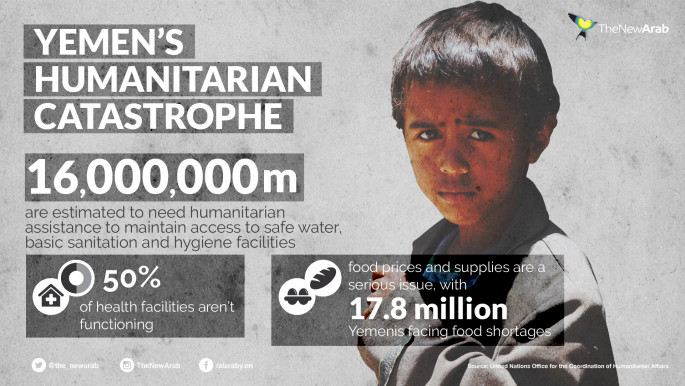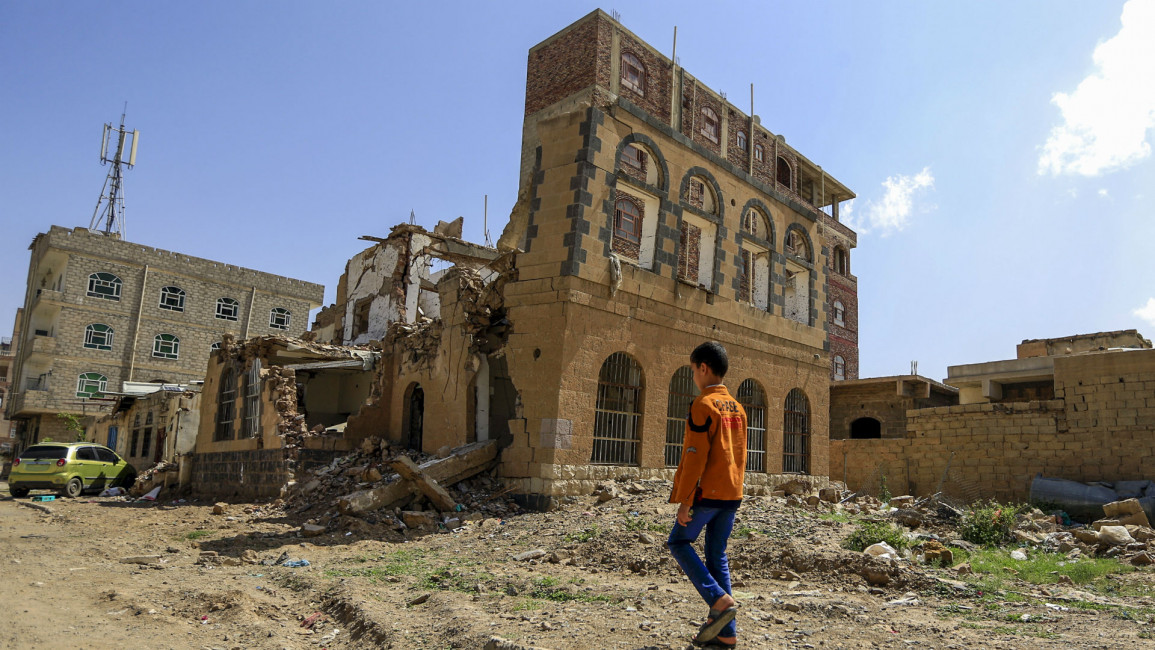'Signal of hope' for Yemen despite talks delay, UN says
Planned talks in Geneva this week between Yemen's warring parties offer a "flickering signal of hope" after years of conflict, the UN mediator said Wednesday, despite signs of delay and low expectations.
The talks will be the first public meetings between the government of Abedrabbo Mansour Hadi and Yemen's powerful Houthi rebels since 2016, when 108 days of negotiations in Kuwait failed to broker a power-sharing deal.
"The people of Yemen... are desperately in need of a signal of hope," UN envoy Martin Griffiths told reporters in Geneva.
Read also: War crimes in Yemen
"We would like to think that the work we will do together in these next days will begin to send a flickering signal of hope to them."
But both the government and the rebels have said they expect no breakthrough at the "consultations", which had been scheduled to open Thursday but appear likely to be delayed.
Rebels stranded in Sanaa
While representatives of the Yemeni government arrived in Geneva Wednesday, the rebels remained stranded in Sanaa, amid claims the Saudi-led coalition backing Hadi was preventing them from leaving for the talks.
 |
|
| [click to enlarge] |
The Houthis said the UN had been unable to "secure authorisation" from a Saudi-led coalition backing the government for a plane to transport the rebel delegation, along with wounded insurgents, out of the country, according to the Houthis' Al-Masirah TV.
While the Houthis control Sanaa and much of northern Yemen, the coalition controls the country's airspace.
When asked about the Houthi charges, Griffiths said: "We are working on that."
The UN meanwhile announced that there would be no meetings at its European headquarters in Geneva on Thursday as previously planned.
But Griffiths said his "informal consultations" with the government side would begin immediately.
"I am looking forward to meeting their leader right after this, Foreign Minister Khaled al-Yamani," he said at a press conference.
 |
The conflict has since left nearly 10,000 people dead and pushed the Arab world's most impoverished country to the brink of famine |  |
That meeting is expected to take place in a Geneva hotel, as are any other meetings that might happen on Thursday, while more formal consultations could kick off at the UN on Friday.
"We are not going to waste time," Griffiths said.
He emphasised that the Geneva talks were "not formal negotiations," but said they aimed to pave the way towards bringing the parties back to the negotiating table.
The talks also seek to put in place a range of so-called confidence-building measures, which could include prisoner swaps and the vaccination of children, he said.
"There is a chance for some tangible progress," he said, adding that he hoped to get the two sides to sit at the same table during the consultations, which are expected to last a couple of days.
Twitter Post
|
Yemen's foreign minister Khaled al-Yamani however told AFP this week that the chance of face-to-face sitdowns between the two delegations was slim to none.
'Broken promises'
The UN Security Council on Wednesday urged both sides in Geneva to "take a first step towards ending a conflict that has brought severe pain and humanitarian suffering to the Yemeni people".
The Houthis have hinted that their delegation demanded the evacuation of wounded rebels to Oman for medical treatment as a condition for attending the talks, and accused the UN of stalling.
Houthi spokesman Mohammed Abdulsalam tweeted on Tuesday that the UN had "made promises on facilitating the transport of the wounded... abroad" - pledges the world body had thus far failed to keep.
Yemen's government meanwhile said Wednesday it planned to demand the release of the body of ex-president Ali Abdullah Saleh, killed by rebels last year, during the talks.
Saleh, for decades the most powerful politician in troubled Yemen, had sided with the Houthi rebels for three years before shifting alliances in the country's armed conflict. He was killed by the rebels in December.
But Griffiths rejected that either side had presented any conditions for taking part in the talks.
"There is a real chance for hope," he insisted. "We will make it happen."
All previous attempts to resolve the Yemen war have failed.
Griffiths is the UN's third Yemen envoy since 2014, when the Houthis overran the capital Sanaa and drove Hadi's government into exile.
The following year, Saudi Arabia and its allies formed a powerful regional military coalition to back Hadi's government in its fight against the Houthis.
The conflict has since left nearly 10,000 people dead and pushed the Arab world's most impoverished country to the brink of famine.



